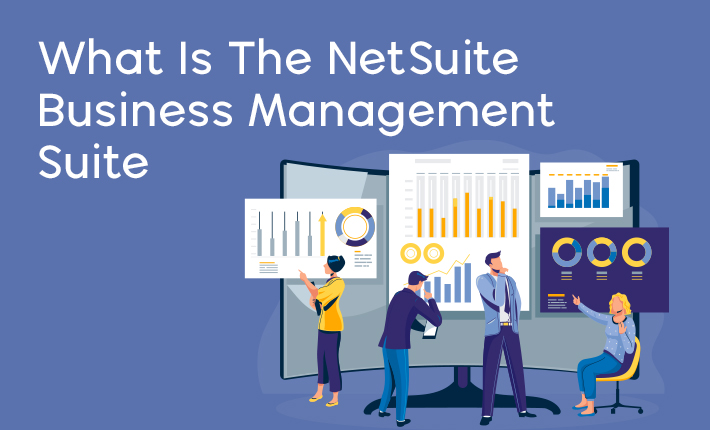The NetSuite business management suite is a comprehensive cloud-based software solution that integrates key business functions to streamline operations, improve efficiency, and drive growth. It offers a wide range of modules and features designed to support various aspects of business management, including financial management, customer relationship management (CRM), inventory and supply chain management, e-commerce, and more. In this article, we will explore the key components and benefits of the NetSuite business management suite in detail.
1. Financial Management: The financial management module of NetSuite provides robust accounting functionality to effectively manage financial operations. It includes features such as general ledger, accounts payable and receivable, fixed assets management, budgeting, revenue recognition, and financial reporting. The module enables businesses to automate financial processes, improve accuracy, and gain real-time visibility into financial performance.
2. Customer Relationship Management (CRM): NetSuite's CRM module helps businesses effectively manage customer relationships, sales, and marketing activities. It allows companies to track leads, manage opportunities, automate sales processes, and provide excellent customer service. With a 360-degree view of customer interactions, businesses can personalize customer experiences, nurture relationships, and drive sales growth.
3. Inventory and Supply Chain Management: The inventory and supply chain management module of NetSuite enables businesses to optimize their supply chain processes. It offers functionalities for demand planning, procurement, order management, inventory tracking, and fulfillment. With real-time visibility into inventory levels, businesses can efficiently manage stock, reduce carrying costs, improve order accuracy, and enhance customer satisfaction.
4. E-commerce: NetSuite's e-commerce module provides businesses with a powerful platform to launch and manage their online stores. It offers features such as website design and customization, product catalog management, shopping cart functionality, secure payment processing, and integration with other modules. With seamless integration between e-commerce and back-office operations, businesses can deliver a unified customer experience and streamline order fulfillment.
5. Project Management: The project management module of NetSuite enables businesses to effectively plan, track, and manage projects of all sizes. It offers features for project planning, resource allocation, time and expense tracking, and project billing. With real-time project visibility and collaboration tools, businesses can ensure project profitability, optimize resource utilization, and deliver projects on time and within budget.
6. Human Resources (HR): NetSuite's HR module helps businesses manage their workforce effectively. It includes features for employee data management, time and attendance tracking, payroll processing, benefits administration, and employee self-service. With centralized HR information, businesses can streamline HR processes, ensure compliance with labor regulations, and improve employee engagement.
7. Business Intelligence and Reporting: NetSuite's business intelligence and reporting capabilities provide businesses with actionable insights to make informed decisions. It offers dashboards, reports, and analytics tools to visualize data, track key performance indicators (KPIs), and identify trends and patterns. With real-time data analysis, businesses can gain a deeper understanding of their operations and drive strategic initiatives.
Customization and Integration: NetSuite offers extensive customization and integration capabilities to tailor the software to specific business needs. Businesses can customize workflows, forms, and fields to align with their unique processes. Additionally, NetSuite's SuiteCloud platform allows businesses to develop custom applications and integrate with third-party systems, enabling seamless data exchange and enhancing overall system functionality.
Benefits of NetSuite Business Management Suite:
1. Centralized System: NetSuite provides a unified platform that integrates all key business functions, eliminating the need for disparate systems and data duplication. This centralization streamlines operations, improves data accuracy, and enables real-time visibility across the organization.
2. Scalability: NetSuite is designed to scale with businesses as they grow. It can accommodate increased transaction volumes, users, and complexities without compromising system performance. This scalability allows businesses to expand their operations without outgrowing their existing software infrastructure.
3. Cloud-based Solution: NetSuite is a cloud-based solution, which means businesses can access their data and applications anytime, anywhere, as long as they have an internet connection. This flexibility enables remote work, enhances collaboration, and ensures that businesses stay connected even when employees are dispersed geographically.
4. Real-time Visibility: NetSuite provides real-time visibility into key business metrics and performance indicators. With up-to-date data and customizable dashboards, businesses can monitor their operations, track performance, and make informed decisions quickly and accurately.
5. Improved Efficiency: By automating manual processes and streamlining workflows, NetSuite helps businesses improve operational efficiency. Tasks such as order management, financial consolidation, and reporting can be automated, reducing manual errors and freeing up resources for more strategic activities.
6. Enhanced Customer Experience: With NetSuite's CRM capabilities, businesses can deliver personalized and seamless customer experiences. They can track customer interactions, manage customer inquiries, and provide timely support, leading to increased customer satisfaction and loyalty.
7. Cost Savings: NetSuite eliminates the need for separate software applications and the associated maintenance costs. It also reduces the dependency on in-house IT infrastructure and personnel, as software updates, backups, and security are managed by NetSuite's cloud infrastructure. This results in cost savings for businesses.
8. Regulatory Compliance: NetSuite helps businesses comply with industry regulations and standards. It offers features for data security, privacy, and audit trails, ensuring that businesses meet compliance requirements and maintain the integrity of their data.
9. Faster Time to Value: NetSuite's pre-configured industry-specific modules and best practices enable businesses to implement the system quickly. This results in a faster time to value, allowing businesses to start benefiting from NetSuite's functionalities and driving business growth sooner.
10. Ongoing Support and Upgrades: NetSuite provides ongoing support and regular system upgrades to ensure that businesses have access to the latest features and enhancements. This allows businesses to stay up to date with technological advancements and leverage new functionalities to optimize their operations.
In conclusion, the NetSuite business management suite is a comprehensive cloud-based solution that empowers businesses with streamlined operations, real-time visibility, and scalability. With modules covering financial management, CRM, inventory and supply chain management, e-commerce, project management, HR, and business intelligence, NetSuite offers a holistic platform to manage various aspects of business operations. The benefits of NetSuite include improved efficiency, enhanced customer experience, cost savings, regulatory compliance, and ongoing NetSuite support and upgrades. By leveraging the power of NetSuite, businesses can streamline their processes, drive growth, and stay ahead in today's competitive business landscape.

















Post Comments